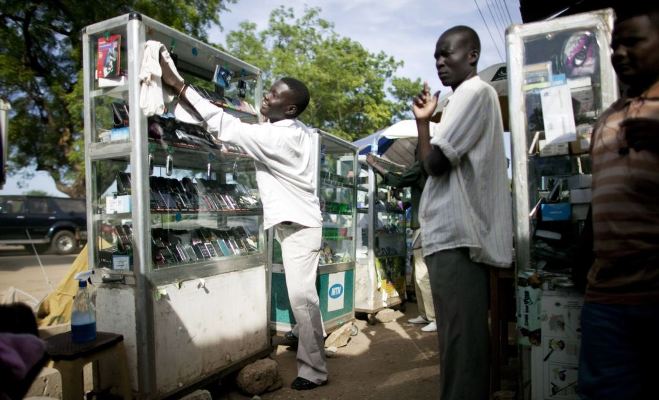S. Sudanese urge communications networks to reduce tariffs charges

October 23, 2016 (WAU) – Phone users in South Sudan have complained of high rate increase of call charges per minute by communications network companies in the troubled nation, warning that many customers will stop using their phones.
After five days that South Sudan operative communications network increased their tariffs charges, many people across the country who are unable to afford scratch card, said the decision should be reversed.
Last week, all operative networks such as Vivacell, the largest phone network in the country, followed by Zain and MTN, announced charge increase by seven times per a call per minute from 47 piasters to more than 3 South Sudanese pounds (SSP) per minute while an international call ranged to 7 pounds per a minute.
In Wau state, Western Bahr el Ghazal region, many network customers on Sunday complained that the rate should be reduced by the operative networks or they switch off their phones due to the high call rates.
Gabriel Dhal Yak, one of the citizen and a regular customer of these networks, said the increase was seven times higher than the previous call charge per a minute, saying the companies would have increased the rate from the 47 piasters to 1 SSP maximum per a minute.
Yak said his own regular calls and networks used have currently come under standstill since the increase, adding he has been forced to scale down the level of communications with his family that lives in neighbouring Uganda.
“I have my family in Uganda and I was using to call them three times a day confirming how they are but now I only call them one time and I hope that if this could continue until next month, my communication with my family would lower to once a week,” said Yak.
“My families are outside the country; this is because of insecurity in my country and if our own development partners like communications network are also contributing for the downfall of this nation than what can we do? The only forward is that they should not punish the ordinary citizen in such manner, this is an economic war which [is] worse against the future of the country,” he added.
Yak said using internet through modem has also collapsed because the charge is high of which the modem connection will not even open email and continue consuming money.
James Mayen from University of Bahr el Ghazal said students who are from different states while studying far away from their families find it difficult to communicate with their families due to the increase of the charges. Meanwhile Mary Gam from the same University said the rate increase has affected their online research of assignments through internet.
Mayen said if the rates continue it would force many students to abandon their phones.
(ST)
